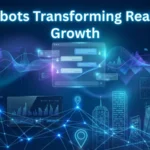Artificial intelligence technologies are getting better by the day. The AI technology has reshaped the world we live in. But what is AI? Well, artificial intelligence is a field of computer science that focuses on building machines and systems that can perform tasks that traditionally required human intelligence. There are several technologies under the broader concept of AI technology. These subfields include Machine Learning Solutions, Deep learning, Computer Vision, Fuzzy Logic, Robotics, etc. One such subfield of artificial intelligence is Gen AI, also called generative artificial intelligence. It is gaining popularity and is being integrated into more and more industries rapidly. In this article, we will try to understand AI for beginners and its future scope.
What is Generative AI?
Generative AI is a recent advancement in the field of artificial intelligence. The gen AI technology is capable of creating original content, unlike traditional AI tools. Generative AI uses Machine learning and Natural language processing to understand human brain functioning. It creates new content like text, images, and code based on the existing data and given input. So, generative AI goes beyond analyzing and classifying data and focuses on generating original results that would require human-brain creativity.
The popularity of Generative AI is not limited to the tech industries. It has gained immense fame in general through easily accessible tools like ChatGPT, DALL-E, and Stable Diffusion. The use of generative AI is also increasing with each passing day. An estimated number of 115-180 million people globally use genAI daily for various purposes. The precision and creativity of genAI are surely impressive, but how does it work? Let us understand how Gen AI functions and leads to original content generation.
How Does GenAI Work?
The functioning of generative AI starts from learning. Generative AI uses machine learning algorithms to analyze large datasets. So, Gen AI can be fed with specific data to train it in that specific field. It uses deep learning methods to understand and mimic human-brain functioning. GenAI employs neural network technology to process existing data, sample from it, and generate new content based on the prompt. It further fine-tunes the results upon continuous iterations and training cycles.
Models of Gen AI for Beginners
Several foundation generative AI models are designed to create different types of content. Different models excel at creating different types of content, such as text, images, and code. These models are further customized according to the industry requirements. Let us see some task-specific AI models here:
Generative Adversarial Networks (GANs)
The generative adversarial network (GAN) is an advanced deep learning technology that contains two components. These two components are a generator and a discriminator. While the generator strives to create original content, the discriminator continuously keeps differentiating between the authentic and generated content versions. This model is used to produce high-quality synthetic data. Its application ranges from image generation to biomedicine.
Diffusion Model
The diffusion model refers to the creation of original content after being trained on a similar large dataset. So this AI model can make an entirely new human face after going through several different human faces in the datasets.
Variational Autoencoders (VAEs)
VAEs encode larger data distributions into a compressed form by sampling data points from the larger set. It applies to various fields from image generation to data compression.
Flow Model
The flow model is an expert at finding out the cause or background of the data it is trained on. Thus, it learns to replicate the exact procedure to create new and original content. It is a reversible process and is faster and more efficient than other genAI models.
The above-mentioned models were all task-specific. There are other GAI (Generative Artificial Intelligence) models like GPT and LLaMA as well. Now, let us understand the role of GenAI in several industries.
Practical Use of AI in Businesses
Generative AI is improving with each passing day, reaching new capabilities and unlocking new uses. Currently, every industry has started using Gen AI in one of its processes. Let us understand in brief the role of generative AI across industries.
Healthcare
The application of generative AI in healthcare is a beneficial move considering the gap in demand and the medical facilities available. Gen AI in healthcare helps in new drug discovery, personalized treatment plans, clinical documentation, and remote medical consultation.
Marketing and Advertising:
The introduction of generative AI brings with it the automation of content creation, crucial to the marketing industry. So, Gen AI in marketing is a blessing for marketers and organizations, as it automates, predicts, analyzes, and suggests innovative marketing strategies customized to the business.
Entertainment Industry:
The entertainment industry also utilizes the power of Gen AI. Personalized suggestions on Netflix and faceless content on Instagram are prime examples of Gen AI in the entertainment industry.
Manufacturing:
Manufacturing is by far the most labor-intensive industry. Gen AI in Manufacturing industry helps automate and streamline repetitive tasks, reducing labor costs. Apart from industry automation, quality analysis, supervision through digital twin, supply chain optimization, and inventory management are also popular use areas of Gen AI.
Software Development:
As generative AI can create original content, it can also create software designs and new code for software development. Integration of Gen AI in IT is predicted to boom in the near future. Generative AI helps complete code, generate new code, identify errors, and suggest corrections for software developers.
Apart from these industries, the role of Gen AI in hospitality, finance, customer service, and e-commerce is also impressive. Get in touch with an AI development companies to understand how generative AI can transform your business and identify the role of AI in your organization.
Benefits of Generative AI in Businesses
Due to its generational, analytical, and predictive features, all refined with its deep learning characteristic, there are many benefits of generative AI in businesses. Some of the major benefits that apply to every industry are:
Increased Efficiency
Automation of repetitive and tedious tasks increases productivity. It provides an opportunity for human staff to upskill and focus on higher-value tasks in a business. Its generative properties help create documentation and emails, freeing up humans from such tasks.
Personalization
Generative AI-powered tools keep track of customer data, history, and preferences to provide a customized experience, leading to increased loyalty. From user experience to marketing material, everything is optimized to save time, effort, and resources, with maximum effect.
Improved Decision Making
The descriptive, diagnostic, predictive, and prescriptive analysis of AI tools helps stakeholders take proactive measures to avoid risks and seize opportunities at the right time. Thus, leading to more informed, practical, and informed decisions.
Innovation
Gen AI brings unfathomable creativity and freshness to the table. Be it product designs, marketing campaigns, or other changes, AI tools help create rapid innovation. It also helps your business stay competent and relevant with a changing customer base.
Cost Reduction
By optimizing every process in an organization, Gen AI technology saves a lot of unnecessary costs. Inventory management and supply chain optimization also play an important role in cost reduction by AI.
Sustainability
With AI integration at every point in a business process, the consumption of energy can be supervised. This helps organizations to keep track of their energy consumption, saving both cost and carbon footprint. With a focus on sustainability, AI tools can be optimized to ensure a sustainable approach in business.
Ethical Concerns and Challenges Regarding Gen AI
The use of generative AI is increasing, and so is the concern about its responsible and ethical use. Some major challenges regarding AI use are:
Ethical Concerns
Use of Gen AI is at its peak today, and with this many people using it, the concern about its ethical use is valid. With its ability to give life to mere imaginations, Gen AI may be used for unethical reasons.
Intellectual Property Concerns
When AI can generate original content, texts, designs, and art, the concern regarding its authority rises. To whom does the creation belong? It is a challenge to determine who will take accountability regarding that creation.
Data Privacy
AI relies on data for its functioning. With access to a web of data, which may include sensitive information as well, security is much needed. A reliable Generative AI service provider will help you with a secure AI tool that keeps your data safe. Data privacy is important to prevent its unintended use.
Biases in Data
It is important to train AI tools on diverse and large datasets to ensure impartial and desired results. Any fault in the training data can result in biases. As Gen AI keeps improving and learning from regular interactions, frequent checks are also necessary to ensure unbiased results.
Future of Generative AI
The future of generative AI in terms of market value is estimated to be high. Here are some numbers that speak of the impact of generative AI and its growing importance. The global Gen AI market is projected to reach $66.89 billion in 2025. With an estimated increase of 36.99% CAGR, it is predicted to reach $442.07 billion by 2031.
| Industry/Sector | Market Share (2024/2025) | Key Use Cases |
| Media & Entertainment | 34% | Content creation, video, music, images |
| Business & Financial Services | Rapid growth (36.4% CAGR) | Automation, analytics, customer engagement |
| Software | 65.5% | Platforms, APIs, creative tools |
| Cloud Deployment | 57% | Scalable AI services for all industries |
Conclusion
The introduction of generative AI is changing the way our world looks. From as small as email writing to as big as healthcare, the uses of generative AI feel straight out of science fiction. Artificial intelligence is undeniably the future of our economy. You can also push your business on a new journey of growth powered by artificial intelligence. Book a consultation with AnavClouds Analytics.ai soon and explore the growth potential of your business with the power of generative AI. Take the first step towards making your business future-ready with us.
FAQs
What is Generative AI?
Generative AI refers to the recent advancement in AI technology, which mimics human brain functioning and is capable of performing tasks that previously required human intelligence.
What is the difference between AI and Gen AI?
Generative AI is a subfield of the broader artificial intelligence (AI) technology. There are other technologies apart from Gen AI that also fall under the AI umbrella.
What are the problems with generative AI?
The major concern with the use of generative AI is ensuring its ethical and responsible use. Apart from this, the IP authority of AI-generated design, or content, is also challenging to assign to someone.
Is ChatGPT a generative AI?
Yes, ChatGPT is a type of generative AI model, Generative Pre-trained Transformers.
What is the main goal of generative AI?
The main purpose of generative AI is to create original content based on existing data patterns.



